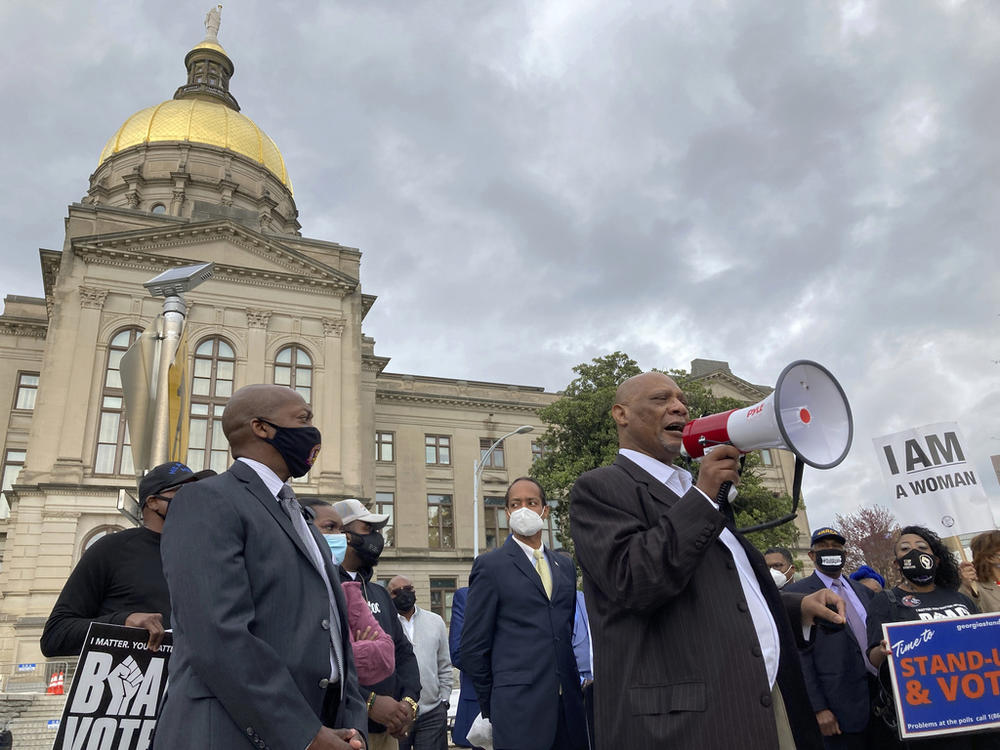
Caption
African Methodist Episcopal Church Bishop Reginald Jackson announces a boycott of Coca-Cola Co. products outside the Georgia Capitol on March 25, 2021 in Atlanta.
Credit: AP Photo/Jeff Amy, File

African Methodist Episcopal Church Bishop Reginald Jackson announces a boycott of Coca-Cola Co. products outside the Georgia Capitol on March 25, 2021 in Atlanta.
A judge has refused to dismiss lawsuits alleging Georgia's congressional and legislative districts illegally discriminate against Black voters.
U.S. District Judge Steve Jones ruled Monday that he could only decide disputes over the facts of the cases and the credibility of the witnesses after a full trial, which he set for September.
"Additionally, given the gravity and importance of the right to an equal vote for all American citizens, the court will engage in a thorough and sifting review of the evidence that the parties will present in this case at a trial," Jones wrote.
The orders apply to three cases, one challenging the lines of Georgia's 14 congressional districts and two challenging the lines of the 56 state Senate and 180 state House districts. All three lawsuits allege that the maps violate the federal voting rights act by weakening the growing electoral strength of Black voters.
Plaintiffs want Jones to order one more congressional district be drawn where Black voters will be able to elect their chosen candidate. That could give Democrats one more congressional district. Republicans hold nine districts and Democrats hold five, after legislative Republicans redrew maps to improve their position from an 8-6 majority in 2020.
The cases had been on hold while Alabama had challenged the Voting Rights Act. The U.S. Supreme Court last month stood behind its interpretation of the law, which says that district lines can't result in discriminatory effects, rejecting Alabama's attempt to change the rules.
That cleared the way for the Georgia cases to move ahead.
Jones has already said that it's likely that some parts of Georgia's redistricting plans violate federal law. However, last year, he allowed the new congressional and state legislative maps to be used for 2022's elections, finding changes close to elections would have been too disruptive.
In the state legislative cases, the challengers argue a map could include three additional majority Black state Senate districts and five additional majority-Black state House districts. Those changes, if approved, would be unlikely to cost Republicans partisan control of either legislative chamber.
Jones has scheduled a joint trial for all three lawsuits starting Sept. 5, which means districts could be redrawn before the 2024 congressional and state legislative elections.
The judge said one key argument advanced by the state to defend the maps — that divisions between Black and white voters are caused by partisanship and not race — didn't apply at this stage of the case, saying only the effects of those divisions mattered now. He also rejected efforts by plaintiffs to win a ruling without a trial, saying he couldn't rule "without making factual determinations, weighing evidence, and assessing the credibility of the experts."
At least two other cases were also filed challenging Georgia's new maps.